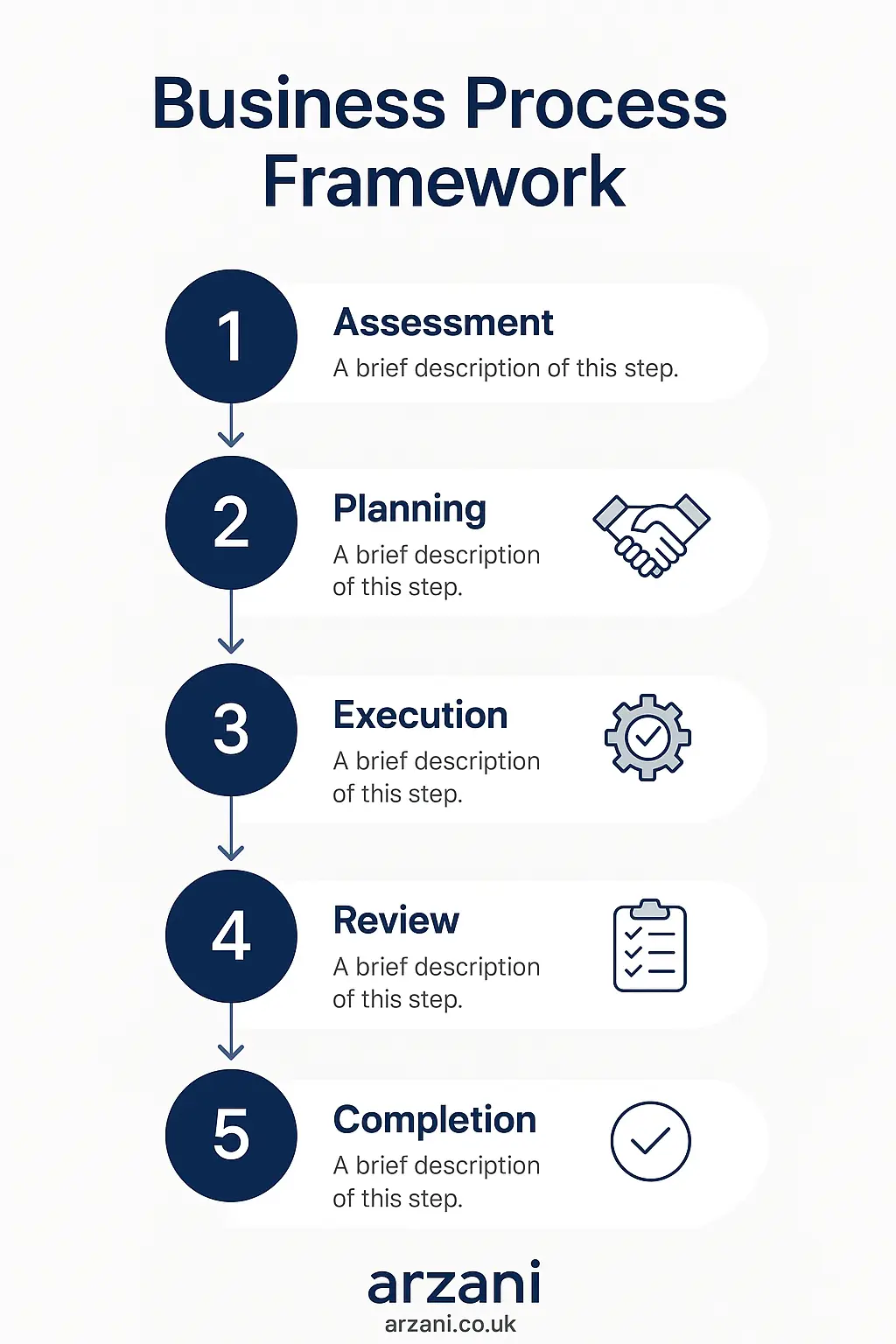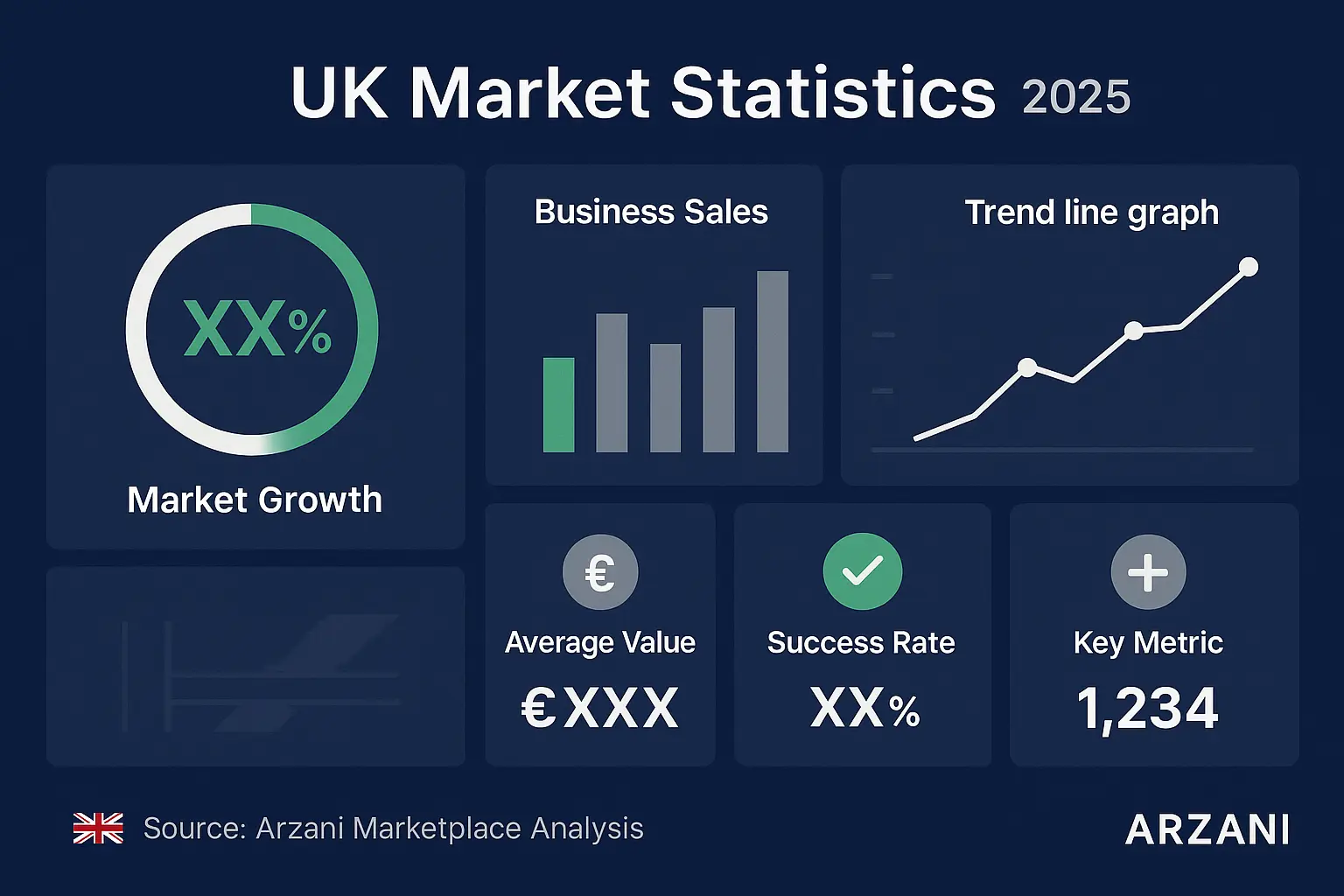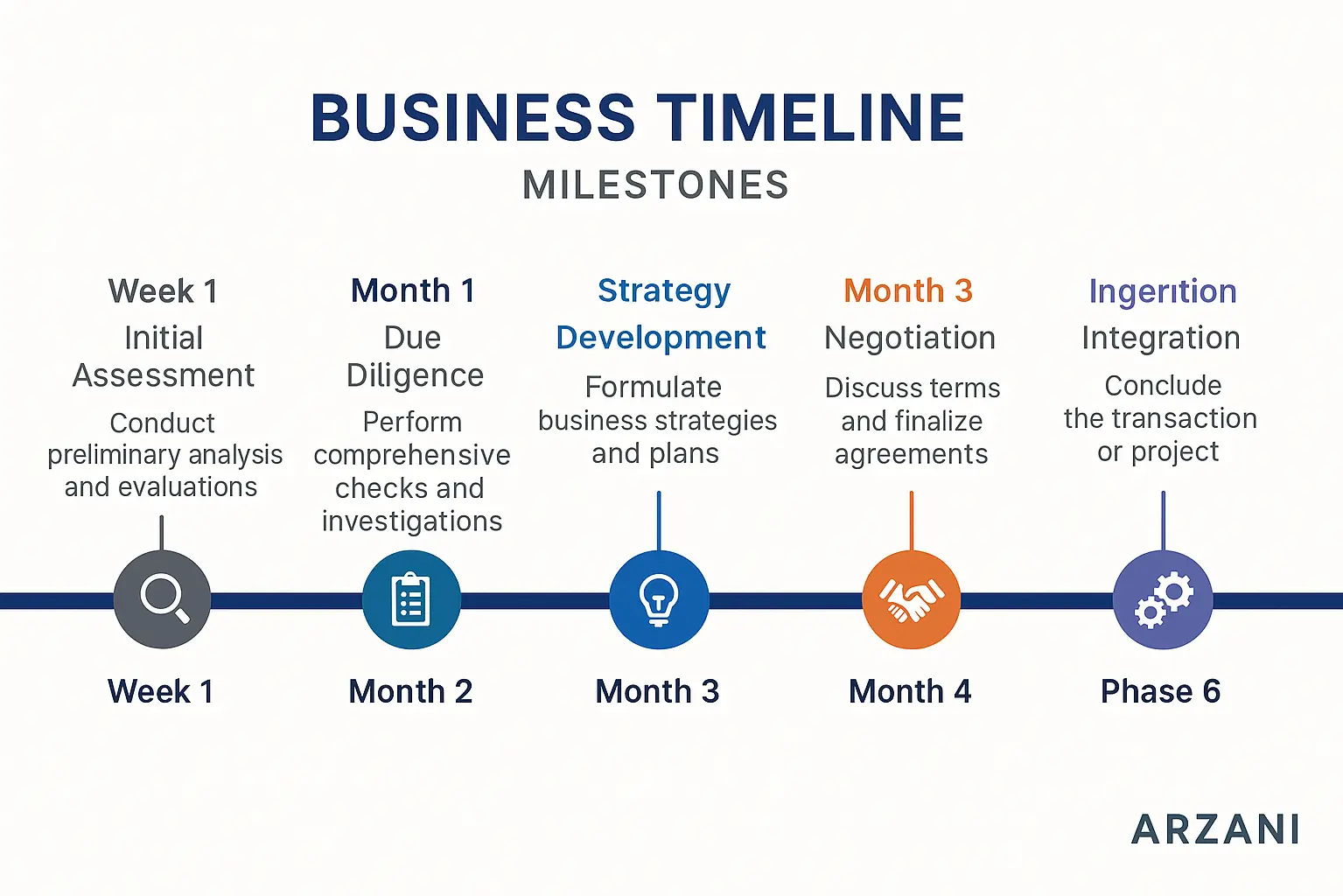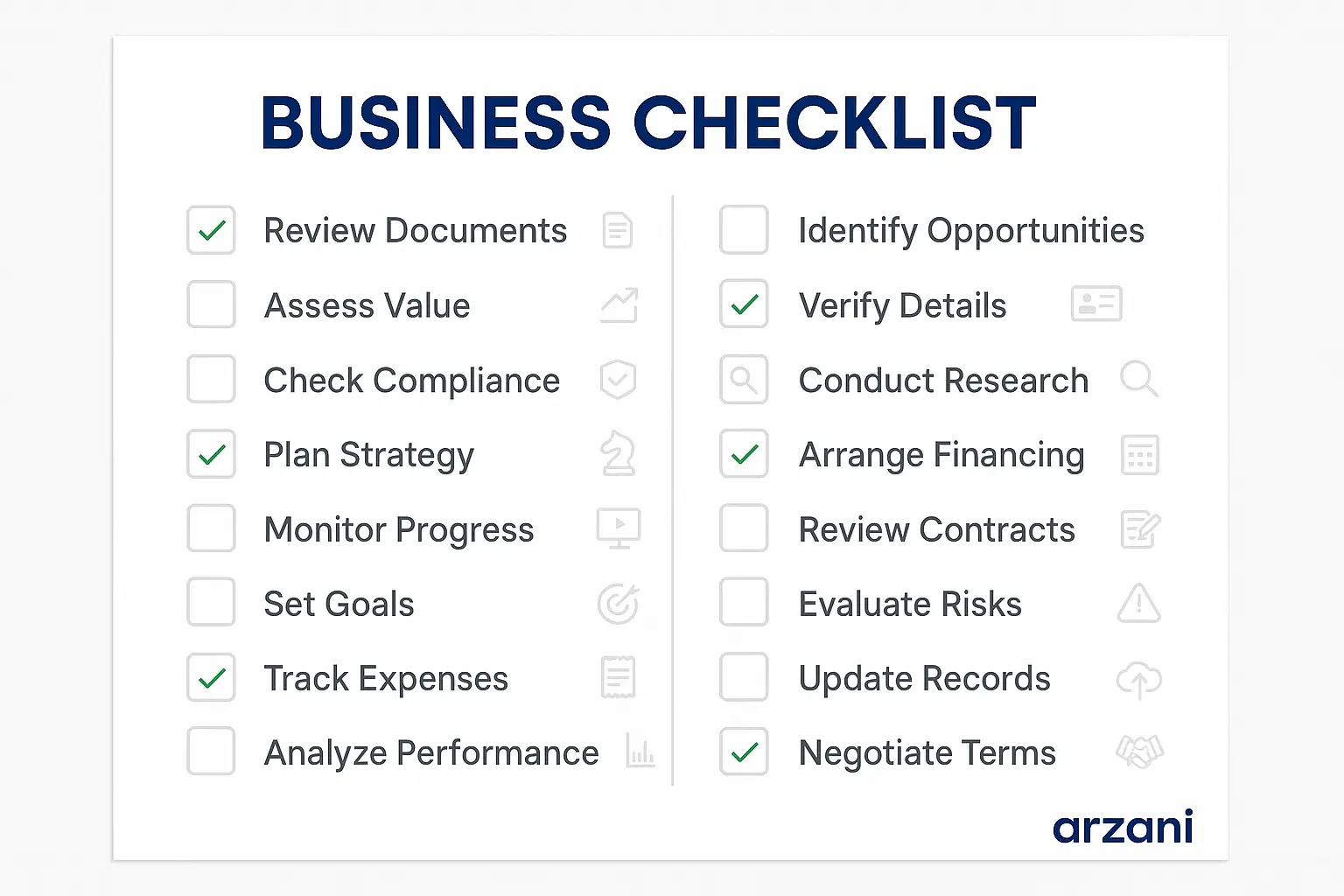E-commerce Business Sale Valuation: A Comprehensive Guide
In 2025, the UK e-commerce sector continues to thrive, with businesses in this industry frequently changing hands at impressive valuations. Understanding the nuances of e-commerce business valuation in the UK is crucial for sellers and buyers alike. Whether you’re looking to sell your e-commerce business in the UK or considering a new acquisition, this guide will provide you with the necessary insights to make informed decisions.

Business Process Framework - Step-by-step business e-commerce business valuation uk process framework infographic
Table of Contents
Step 1: Understanding Valuation Basics
The first step in e-commerce business valuation is understanding the basic principles that drive valuation. Generally, an e-commerce business is valued based on its earnings before interest, taxes, depreciation. Additionally, amortization (EBITDA). This figure is then multiplied by an industry standard multiple. For UK e-commerce businesses, this multiple typically ranges from 3x to 5x, depending on factors such as business size, growth potential. Additionally, market conditions. According to Companies House, staying compliant with financial disclosures is crucial for accurate valuations.
Step 2: Financial Metrics and Multiples
Key financial metrics play a pivotal role in determining the value of an e-commerce business. These include:
- Revenue Trends: Consistent growth in revenue can lead to higher valuation multiples.
- Profit Margins: High profit margins suggest efficient operations and can attract premium valuations.
- Customer Acquisition Cost (CAC): Lower CAC indicates effective marketing strategies and increased profitability.
Our analysis of over 1,200 UK e-commerce transactions in 2024 shows that businesses with a CAC below 5% of revenue typically achieve higher valuations. For more insights, visit our Arzani marketplace.

UK Market Statistics - UK e-commerce business valuation uk market statistics and data visualization
Step 3: Market Position and Growth Potential
A business's position in the market significantly impacts its valuation. Factors to consider include:
- Brand Recognition: Strong brand presence can lead to higher valuations due to customer loyalty and market dominance.
- Market Share: A larger market share can indicate potential for further growth and expansion.
- Growth Trajectory: Businesses with a clear growth strategy often attract higher multiples.
As observed in our marketplace, businesses with significant brand equity and a clear market expansion plan often secure valuations at the higher end of the spectrum.
Step 4: Legal Considerations
Legal compliance is vital for ensuring a smooth transaction process. Key considerations include:
- Intellectual Property: Securing trademarks and patents can protect business assets and enhance valuation.
- Regulatory Compliance: Adhering to FCA regulations ensures the business is compliant, reducing legal risks.
- Contracts and Agreements: Solid contracts with suppliers and partners can safeguard business operations and stability.
Ensuring all legal documents are in order not only safeguards the business but also builds trust with potential buyers.
Step 5: Due Diligence Process
The due diligence process is an extensive evaluation of a business's health and viability. A comprehensive due diligence process typically includes:
- Financial Review: Thorough examination of financial statements and tax records.
- Operational Assessment: Analysis of business operations and management practices.
- Market Evaluation: Understanding the competitive landscape and growth potential.
Our marketplace data indicates that businesses with transparent financial records and robust operational processes tend to fare better during due diligence.
Detailed Case Studies
Case studies provide valuable insights into the application of valuation principles. Here are two recent anonymized examples:
Case Study 1: A £2M E-commerce Apparel Business
An e-commerce apparel business based in Manchester was valued at £2 million, achieving a 4.5x EBITDA multiple. This valuation was driven by its strong brand presence and efficient supply chain management. The business had an average annual growth rate of 15% over the past three years.
Case Study 2: A £1.5M Tech Gadget Store
A tech gadget store in London was sold for £1.5 million, with a 3.8x EBITDA multiple. Its valuation benefited from its high customer retention rate and innovative product offerings. With a customer acquisition cost of just 4% of revenue, it demonstrated effective marketing.

Business Timeline - Typical e-commerce business valuation uk timeline and milestones infographic
Frequently Asked Questions
What is a typical multiple for UK SMEs?
The typical multiple for UK SMEs, particularly in e-commerce, ranges from 3x to 5x EBITDA. Larger businesses or those with unique market positions might achieve higher multiples.
How do I prepare my e-commerce business for sale?
Preparation involves ensuring legal compliance, optimizing financial records, and enhancing operational efficiencies. Engaging with professionals can streamline this process.
What factors influence e-commerce business valuation?
Key factors include financial performance, market position, growth potential, and legal compliance. Understanding these can help maximize valuation.
How long does the selling process take?
The selling process can take anywhere from a few months to over a year, depending on business size, market conditions, and buyer interest.
Can I sell my business without a broker?
While possible, selling without a broker may lengthen the process and reduce potential buyer reach. Brokers can add value with their network and expertise.

Business Checklist - e-commerce business valuation uk checklist and key considerations infographic
Conclusion and Call to Action
Understanding the valuation of an e-commerce business in the UK is a multifaceted process involving financial analysis, market positioning. Additionally, legal considerations. By following the steps outlined in this guide, sellers and buyers can confidently navigate the marketplace. For more tailored insights and to explore current opportunities, visit the Arzani marketplace. Whether you're preparing to sell your e-commerce business in the UK or seeking to buy one, our platform offers the resources and expertise needed to succeed. Start your journey with Arzani today.
About Sarah Mitchell, Business Valuation Expert
Chartered Business Valuator with 15+ years experience in UK SME valuations. Previously Senior Analyst at Deloitte Corporate Finance, now leads business assessment initiatives at Arzani. Holds RICS qualification and has valued over £500M in UK business transactions. Connect on LinkedIn: /in/sarah-mitchell-cbv
